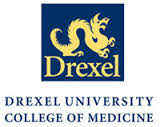Study To Evaluate D-Ribose For The Treatment of Congestive Heart Failure
| Status: | Terminated |
|---|---|
| Conditions: | Cardiology |
| Therapuetic Areas: | Cardiology / Vascular Diseases |
| Healthy: | No |
| Age Range: | 18 - 90 |
| Updated: | 4/21/2016 |
| Start Date: | July 2013 |
| End Date: | November 2013 |
Randomized, Double-Blind, Placebo-Controlled Study To Evaluate D-Ribose For The Treatment Of Congestive Heart Failure
To evaluate the safety and to determine the efficacy of D-ribose for the treatment of
congestive heart failure (CHF) in subjects who have been stabilized following
hospitalization with acute decompensation.
congestive heart failure (CHF) in subjects who have been stabilized following
hospitalization with acute decompensation.
This is a phase IIa, randomized, double-blind, placebo-controlled, multi-center study of
D-ribose administered via peripheral intravenous line for 24 hours to stabilized
hospitalized patients following standard of care treatment for acute decompensation of CHF,
followed by oral dosing of D-ribose three times a daily through the remainder of the
inpatient hospital stay and outpatient period of 3 months. Subjects will complete
Pretreatment Screening procedures only after the Investigator has established that they have
met the pre-specified criteria for stabilization of heart failure, and be randomized to
treatment no more than 7 days after admission to the hospital.
D-ribose administered via peripheral intravenous line for 24 hours to stabilized
hospitalized patients following standard of care treatment for acute decompensation of CHF,
followed by oral dosing of D-ribose three times a daily through the remainder of the
inpatient hospital stay and outpatient period of 3 months. Subjects will complete
Pretreatment Screening procedures only after the Investigator has established that they have
met the pre-specified criteria for stabilization of heart failure, and be randomized to
treatment no more than 7 days after admission to the hospital.
Inclusion Criteria:
- written informed consent and Health Insurance Portability and Accountability Act
authorization, as applicable;
- symptomatic heart failure (NYHA Class II, III or IV) ≥ 30 days prior to current acute
decompensation episode;
- ≥2 of the following signs of acute decompensation: jugular venous distension, rales,
dyspnea, and ≥ 1+ pedal edema;
- admitted to the hospital ≤ 36 hours after initial evaluation;
- discontinued from IV inotropic support ≥ 48 hours prior to Screening;
- initiated Screening when subject has met the following criteria for stabilization:
- exacerbating factors addressed;
- near optimal volume status;
- transition from IV to oral diuretic completed;
- near optimal pharmacologic therapy achieved or intolerance documented;
- completed Screening procedures and been randomized to treatment ≤ 7 days after
hospital admission;
- LVEF ≤ 35% ≤ 12 months prior to Screening.
- if female, ≥ 2 years post-menopausal, surgically sterile, or practicing effective
contraception;
- if female, non-lactating, and if of child-bearing potential, has negative pregnancy
test result at Screening;
- willing to abstain from ribose-containing products during study.
Exclusion Criteria:
- significant medical condition(s) which, in Investigator's judgment, could compromise
subject's welfare or confound study results;
- significant hepatic, renal, or hematologic disorder/dysfunction beyond that expected
from CHF alone;
- Creatinine Clearance <30.0 mL/min at Screening;
- serum potassium level <3.5 milliequivalent per liter or >5.7 milliequivalent per
liter, or a serum sodium level <130 milliequivalent per liter at Screening;
- systolic arterial blood pressure <90 mm Hg at Screening;
- received ultrafiltration during current admission;
- cardiac surgery ≤ 60 days prior to Screening, except for percutaneous intervention;
- planned revascularization procedures, electrophysiologic device or cardiac mechanical
support implantation, cardiac transplantation, or other cardiac surgery ≤ 90 days
after study enrollment;
- functional mitral valve regurgitation > moderate severity;
- aortic regurgitation of at least moderate severity;
- hemodynamically significant primary cardiac valvular disease;
- myocardial infarction ≤ 30 days prior to Screening;
- Acute Coronary Syndrome ≤ 30 days prior to Screening;
- known or suspected right-to-left, bi-directional, or transient right-to-left cardiac
shunt;
- sustained ventricular tachycardia or ventricular fibrillation ≤ 30 days prior to
Screening, unless automatic implantable cardioverter defibrillator is present;
- atrial fibrillation within the past year;
- CHF related to tachyarrhythmias or bradyarrhythmias;
- CHF due to uncorrected thyroid disease, active myocarditis, or known amyloid
cardiomyopathy;
- angina at rest or with slight exertion and/or unstable angina;
- diagnosed with hypertrophic cardiomyopathy;
- cerebrovascular accident ≤ 6 months prior to Screening;
- cardiogenic shock at any time from initial evaluation to randomization;
- on cardiac mechanical support;
- biventricular pacer placement ≤ 60 days prior to Screening or needed pacemaker
placement during the current admission;
- refractory, end-stage heart failure;
- type I or type II diabetes;
- history of pancreatitis;
- current systemic infection;
- urinary tract obstruction;
- morbidly obese (weight > 159 kg [350 lbs] or BMI >42 kg/m2);
- active malignancy at Screening. [Treatment for basal cell or stage 1 squamous cell
carcinoma, or cervical carcinoma in situ allowed];
- terminally ill or has moribund condition;
- history of irritable bowel syndrome, inflammatory bowel disease, ischemic colitis,
vascular intestinal atherosclerosis, previous bowel resection, impaction, or similar
gastrointestinal conditions;
- currently taking Kayexalate® (sodium polystyrene sulfonate);
- allergic reaction to Optison™ or Definity® or any of their components.
We found this trial at
21
sites
University of Iowa Hospitals and Clinics University of Iowa Hospitals and Clinics—recognized as one of...
Click here to add this to my saved trials
University of Maryland, Baltimore Welcome to the University of Maryland, Baltimore (UMB) founded in 1807...
Click here to add this to my saved trials
Click here to add this to my saved trials
Click here to add this to my saved trials
Click here to add this to my saved trials
Genesys Regional Medical Center Genesys Health System, a member of Ascension Health, is a group...
Click here to add this to my saved trials
Click here to add this to my saved trials
Click here to add this to my saved trials
Click here to add this to my saved trials
Click here to add this to my saved trials
Click here to add this to my saved trials
Click here to add this to my saved trials
Columbia University Medical Center Situated on a 20-acre campus in Northern Manhattan and accounting for...
Click here to add this to my saved trials
Click here to add this to my saved trials
Click here to add this to my saved trials
2900 W Queen Ln
Philadelphia, Pennsylvania 19129
Philadelphia, Pennsylvania 19129
(215) 991-8100

Drexel University College of Medicine Drexel University College of Medicine represents the consolidation of two...
Click here to add this to my saved trials
Stony Brook University Medical Center Stony Brook Medicine expresses our shared mission of research, clinical...
Click here to add this to my saved trials
Click here to add this to my saved trials
Click here to add this to my saved trials
Click here to add this to my saved trials




